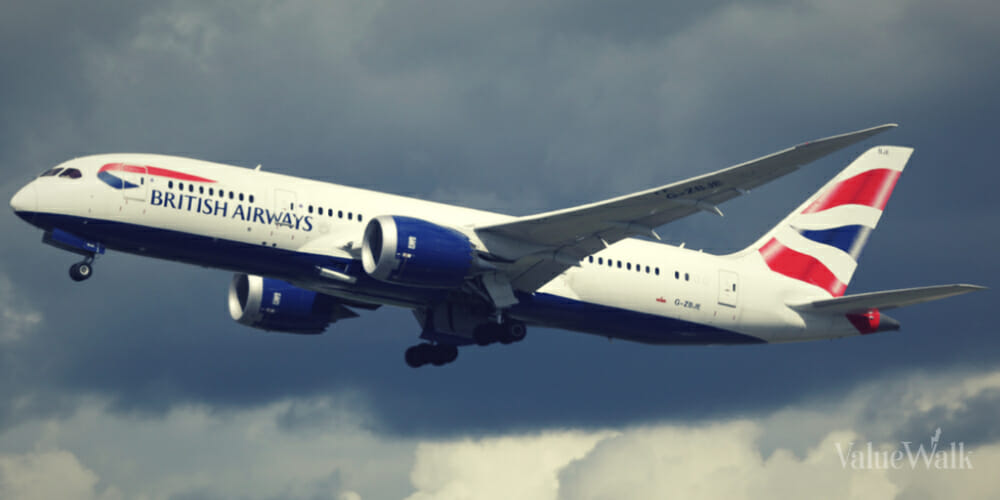- International Consolidated Airlines swings to profit on travel rebound
- Consumer confidence rebounds unexpectedly by seven points to -38 on the index by GfK
- US markets jittery as investors wait for January data on US personal income and consumer spending
- Netflix cuts prices in over 30 countries
IAG Swings To Profit
British Airways owner, IAG (LON:IAG) has swung to an operating profit of €1.2bn, compared to billions in losses last year. The impressive regaining of altitude comes as a direct result of Covid restrictions easing and a return to more normal travel.
Q4 2022 hedge fund letters, conferences and more
As a long-haul specialist, IAG has been one of the last names in the sector to gain momentum following the pandemic. Of course, aviation has flown straight into another hurdle in the form of a cost-of-living crisis.
So far it seems pent up demand for travel is keeping things propped up, but there is a limit to how long this can continue. It’s heartening to see IAG’s capacity ramping back up to pre-pandemic levels – getting to this point didn’t come without its well-publicised challenges.
Expanded flying programmes and the agreed acquisition of the remaining Air Europa stake both mean IAG is in the best position possible to capture as much of the market as possible. In times of economic difficulty it’s common to see consolidation in the aviation sector, BA’s enormous brand power and scale means it’s able to make the most of changing market dynamics.
With that in mind, it’s crucial to keep an eye on debt. At 3.1 times cash profits the debt pile is too heavy following efforts to keep liquidity in check during the pandemic. Should enough passengers continue to be funnelled on to planes, that should start to come down relatively quickly.
Consumer Confidence Rebounds
One thing that bodes well for IAG’s continued recovery is the unexpected seven-point rebound in consumer confidence, according to GfK. The UK economy recently narrowly avoided recession and the narrative has shifted to one of peak inflation, and an end in sight to interest rate hikes.
Consumers with more confidence tend to be more willing to part with cash, which could feed through to better-than-expected retail performance. At -38 the index isn’t in the rudest of health, but it’s certainly a step in the right direction. The irony is of course that policy makers are desperate for consumers not to be too confident, because that results in too much money being splashed in the economy, ultimately feeding higher inflation.
Jittery US Markets
US equity futures fell slightly, after Wall Street closed higher in an unstable session overnight. Investors are nervously waiting for January data on US personal income and consumer spending. The US has been hit by a wave of economic data which seems to contradict itself in recent weeks and months.
This all adds to confusion about the pace and gradient of future interest rate hikes, and markets dislike uncertainty more than they dislike hardship. There are some bright spots, including upbeat guidance from NVIDIA Corporation (NASDAQ:NVDA) on Thursday, with its quarterly results beating on both revenue and profits.
This is unlikely to carry tech-sentiment all the way back to cloud nine, but it’s an important marker of renewed optimism.
Netflix Cuts Prices
Netflix Inc (NASDAQ:NFLX) has cut prices in over 30 countries, across parts of Asia, Europe, Latin America, sub-Saharan Africa and the Middle East. This is a direct combination of cost-of-living pressures and steep competition.
Simply put, consumers have less cash to spend and more choice than ever when it comes to streaming. Netflix shares closed 3.4% lower after the news emerged, as investors mulled the group’s ability to rise to the occasion of defending itself against rivals – and not for the first time.”
Article by Sophie Lund-Yates, lead equity analyst at Hargreaves Lansdown






